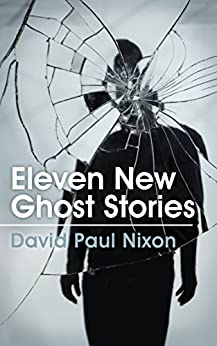
We arrived at seven and were given a small bottle of beer, which I finished in a minute. After some nibbles, which were no more than wafers topped with fish paste, we were shown to our seats in their living room. Two rows of plastic garden chairs — three on each side. A total of 11 people. One space was free, so clearly someone had escaped. Lucky bastard!
I live in a rural village in Normandy, France. Five doors along, my neighbours, Violette and her German husband, Mikkel, have been renovating their farmhouse. When they finally finished after two years, my wife and I, along with the rest of the village, were invited round to watch a presentation on the project.
Cool! I thought, we’ll have some drinks, wrap up the presentation in about fifteen minutes, drink some more booze, eat some food, and go home.
Half an hour into the presentation, we still hadn’t got to the kitchen. So far, just a meandering monologue from Violette, plus photos (lots of), of the living room and dining room remodeling. Furthermore, I hadn’t been given another beer, and as I noticed that Mikkel was about to take over the slideshow (clearly Violette was exhausted), I saw my chance and headed to the kitchen.
I’m not an alcoholic, but there’s only so much renovation content a man can cope with before he has to drown his misery. So I found the fridge and helped myself to the strongest stuff I could find. A strong Belgian beer called Kwak, which when you order it in a bar here, comes in a glass without a handle and is supported in a wooden holder that looks like something from a chemistry class.
It took two bottles from the fridge, opened them, and crept back into the lounge, avoiding the fierce gaze of Violette, who must have thought I was committing heresy (I was), and let Mikkel get on with his spiel.
This was pretty much the same as Violette’s. Except that, being a guy who gauges his self-importance by going into detail on inane subjects like concrete density, it ended up being twice as long, with four times as many photographs.
Luckily I had my Kwaks to comfort me. So by the time the presentation finally made it outside into the garden, which, THANK GOD!, hadn’t been finished yet, I was feeling a little drunk. This had the effect of masking the intense state of boredom that had crept over me during the one and three-quarter hour session. Nearly two hours watching a slide show of somebody else’s house renovation.
Pinch me!
I was so bored, I would happily have jumped in the old cesspit they had uncovered during the project (40 photos of this), and escaped by an underwater exit route. Like in the Shawshank Redemption.
I don’t know how anybody else felt about the evening (I didn’t ask), but these things aren’t for me. I mean, who cares? It’s just a renovation of an old farmhouse, and I don’t understand why I had to watch over two thousand slides (my wife counted) of drains, rotting timber and old wells.
There was a TV program once on Channel 4 in the UK called Grand Designs. It was about people who bought old lighthouses or World War Two bunkers and made them into liveable houses. It had some celebrity architect who oversaw the projects, and it was half interesting as there was an element of surprise and wonder to it. You wanted to see how it was possible to convert an old submarine on the Scottish coast into a five-star hotel!
This, on the other hand, was just a boring rectangular Normandy farmhouse, that once all the nice bits, like the stone fireplaces and sash windows had been ripped out, was just another housing block stuffed full of white plasterboard. I couldn’t see any artistic vision in the slightest, and yet they wasted two hours of my time pretending it was interesting.
It wasn’t. It was dull. They had taken a perfectly good house and converted it into a hospital waiting room. If I had run the project through an A.I. interior design program, I would have got something very similar. Possibly even better.
And the worst aspect was, they didn’t even live there. They lived in Paris and were only converting it for the holidays and when they retired. Nice if you have the choice!
Even two weeks after the event — it’s taken me that long to recover — I still have flashbacks to that night. Albeit, in a mild, amusing way.
The thing that grated me the most was how people think anyone would be interested in an event like this. It would be like me putting on an exhibition of my artwork and forcing everyone in the village to stare at it for two hours.
I like my artwork. But I would never show it to anyone — not even my wife. So why show me, in intricate detail, your house? What do they want me to do, burgle it? Because if they did, I’d certainly know my way around it.
After the ‘show’, Mikkel and Violette (finally!) brought out more drinks and food, so we could all talk about it. And being a cordial neighbour, and not a total asshole, I congratulated them on the project.
I even asked a few trivial questions about the plumbing, before feigning tiredness and going home, leaving my wife to fend for herself. I work on Saturdays, I pointed out to everyone.
A few days later, someone left a parcel on our doorstep. Strange, I thought, I haven’t ordered anything. And I certainly don’t know many people well enough for them to leave me a present. Was it a bomb?
I opened it to discover a six-pack of Kwak with a note written in English saying:
Thanks for coming. Violette and Mikkel.
Oh well, at least they haven’t lost their sense of humour.
Originally published on Medium. For more stories, comment and observation, see my Medium page.

























